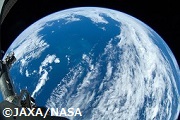| タイトル | Estimation of the Dose and Dose Rate Effectiveness Factor |
| 本文(外部サイト) | http://hdl.handle.net/2060/20140001485 |
| 著者(英) | Cucinotta, F. A.; Chappell, L. |
| 発行日 | 2013-09-14 |
| 言語 | eng |
| 内容記述 | Current models to estimate radiation risk use the Life Span Study (LSS) cohort that received high doses and high dose rates of radiation. Transferring risks from these high dose rates to the low doses and dose rates received by astronauts in space is a source of uncertainty in our risk calculations. The solid cancer models recommended by BEIR VII [1], UNSCEAR [2], and Preston et al [3] is fitted adequately by a linear dose response model, which implies that low doses and dose rates would be estimated the same as high doses and dose rates. However animal and cell experiments imply there should be curvature in the dose response curve for tumor induction. Furthermore animal experiments that directly compare acute to chronic exposures show lower increases in tumor induction than acute exposures. A dose and dose rate effectiveness factor (DDREF) has been estimated and applied to transfer risks from the high doses and dose rates of the LSS cohort to low doses and dose rates such as from missions in space. The BEIR VII committee [1] combined DDREF estimates using the LSS cohort and animal experiments using Bayesian methods for their recommendation for a DDREF value of 1.5 with uncertainty. We reexamined the animal data considered by BEIR VII and included more animal data and human chromosome aberration data to improve the estimate for DDREF. Several experiments chosen by BEIR VII were deemed inappropriate for application to human risk models of solid cancer risk. Animal tumor experiments performed by Ullrich et al [4], Alpen et al [5], and Grahn et al [6] were analyzed to estimate the DDREF. Human chromosome aberration experiments performed on a sample of astronauts within NASA were also available to estimate the DDREF. The LSS cohort results reported by BEIR VII were combined with the new radiobiology results using Bayesian methods. |
| NASA分類 | Aerospace Medicine; Life Sciences (General) |
| レポートNO | JSC-CN-29458 |
| 権利 | Copyright, Distribution as joint owner in the copyright |
|

